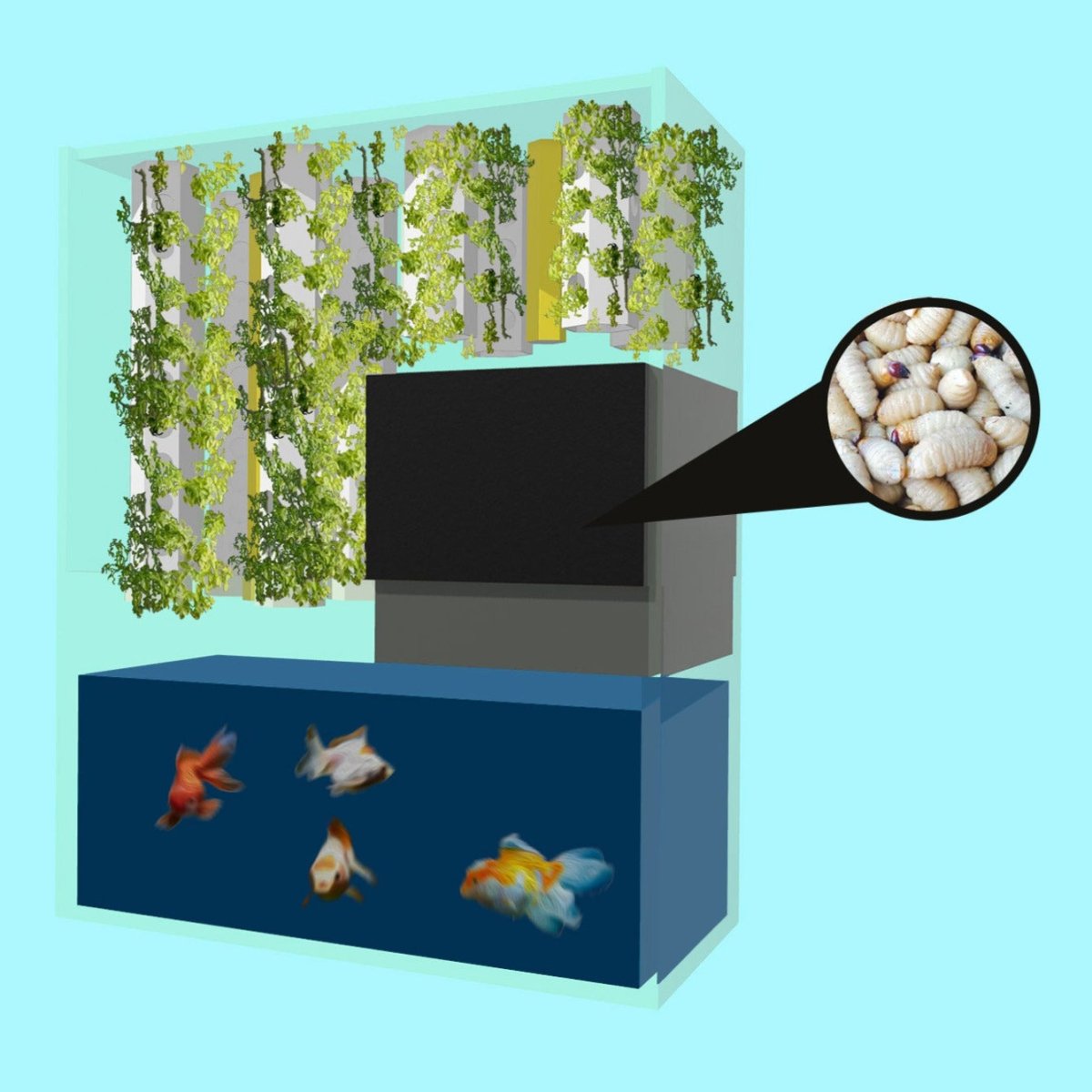
This system offers numerous benefits across various domains, including waste reduction, food production, environmental conservation, and more.
Organic Waste War with Black Soldier Fly (BSF):
- Global food losses and waste: 1.6 billion tons per year.
- BSF turns 31% of organic waste into water, 10% into CO2, 34% into organic fertilizer, 5% into protein, and 2% into fat.
- BSF larvae eat twice their body weight daily in organic waste.
- They reduce methane production, a greenhouse gas 25 times more potent than CO2.
At-Home and Community Solutions:
- Organic Waste Recycler of 1 ton organic material per year can fit the size of a SMART car.
- They produce antibacterial and anti-inflammatory materials that eliminate germs and fungi.
Growing Protein Deficit and Population Growth:
- Global population expected to reach 9.6 billion by 2050.
- A 70% increase in food production is required.
- Insect protein (including BSF) has applications for both animal feed and human consumption.
Components of the System:
- Organic Waste Recycling: Black chamber with BSF larvae and red earthworms.
- Fish Reservoir: Self-harvested larvae feed fish.
- Plant Filter: Hexagonal tubes filter waste from fish water.
- Water Cycle: Closed system for nutrient transport.
- Highly Efficient LED: Lighting for plants.
- Solar Collector: Allows sunlight for leaves and algae growth.
- Sensors: Automates processes for efficiency.
- Little Maintenance: Technology manages daily tasks.
Advantages:
- Waste Elimination: Potential elimination of 5.12 billion kg of waste in Germany alone.
- Oceans, Rainforest, and Environment Protection: Reduces pollution, deforestation, and chemical usage.
- Feed and Transport Efficiency: Land savings, less overfishing, reduced transport, and congestion.
- Chemical-Free: No antibiotics, insecticides, herbicides, or other poisons.
- Plastic and Oil Reduction: Less packaging, simplified waste separation, reduced energy consumption.
- Water and Area Conservation: Low water consumption, no water pollution, area savings.


